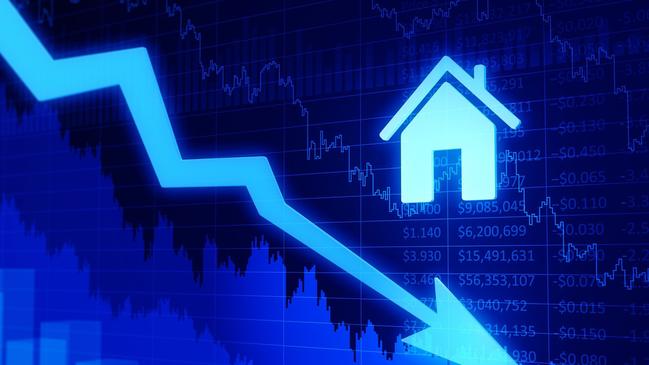Why retail investor confidence is falling
Retail investor confidence levels have fallen this year to levels even below that in the Covid-19 crisis two years ago.

Retail investor confidence in Australia has dropped sharply this year in the wake of more volatile markets, rising interest rates and global political uncertainty, according to a new survey by Chartered Accountants Australia and New Zealand.
The survey of retail investors with more than $10,000 in shares, property, managed funds and other products, shows confidence levels have fallen this year to levels even below that in the Covid-19 crisis two years ago.
“The deep cuts in the share market, ongoing political unrest and associated broader economic issues all led to the very concerning results in the survey,” Chartered Accountants Australia chief executive, Ms Ainslie van Onselen said, releasing the survey.
“The quadruple whammy of the pandemic, turbulent market conditions around supply chains, inflation and national and international interest rate increases have put investor confidence on the ropes,” she said.
The survey, which was undertaken in mid-June, showed “unprecedented dire sentiment among retail investors.”
“Investor confidence in local and international capital markets is at the lowest levels we’ve seen since the survey was launched four years ago,” Ms van Onselen said.
The survey shows a 10 per cent increase in investors citing global political unrest as the biggest risk to the Australian economy over the past year, with a quarter of all investors now worried about its impact on the local economy.
At the same time there was a 10 per cent fall in investor confidence in local and international markets.
The survey shows that investor confidence in crypto currencies was low with just over half having no or very little confidence in this as an investable asset class.
This was the first time that the survey covered crypto currencies and non fungible tokens.
The survey shows a sharp divide in views about investing in crypto assets by age groups, with younger investors still optimistic but those over 45 most worried about it.
“When it comes to crypto assets investors are manifestly split across age groups,” Amir Ghandar, reporting and assurance leader for Chartered Accountants Australia told the Australian in an interview.
The group’s latest survey of retail investors shows that 71 per cent of those between 18 and 44 are still confident about investing in crypto assets.
Their confidence levels in crypto are almost as high as their confidence in making traditional investments such as shares, where 79 per cent of the cohort still have confidence in investing.
But the survey shows that only 26 per cent of those over 45 surveyed have confidence in investing in crypto assets.
Only 10 per cent of those aged 18 to 44 had no confidence at all in crypto investing while 43 per cent of the over 45 age group had no confidence in it.
“Younger investors say they believe the buzz around crypto including what they are hearing about it on the news, social media and from friends,” Mr Ghandar said.
“Ultimately, they believe in the technology.”
But he said that older investors are still “spooked” by crypto’s volatility and were also wary of the perceived lack of regulation around crypto assets.
“In a sense they are both right,” he said.
“Blockchain has enormous potential to revolutionise integrity and transparency.”
But he said there was not the same comfort levels of regulation around crypto investments as there was around more traditional investments.
The survey showed that people who had confidence in crypto as an investment liked what they saw as the transparency around the distributed ledger technology underlying crypto.
They also believed that the technology underlying it was more reliable than that underlying traditional intermediaries.
But the overwhelming reasons for those having confidence in it were the receipt of positive news about it and their personal experience investing in it.
Those who were wary about crypto say they don’t understand the technology underlying crypto assets and they were concerned about volatility, lack of regulation and lack of transparency around it.
Mr Ghandar said it was hoped that blockchain would eventually merge with more traditional mechanisms for information and market integrity in financial reporting.
He said one of the major issues in Australia was the need for financial reporting to move beyond traditional paper and PDF formats and become more digital.
“Most major markets around the world have adopted digitised reporting,” he said.




To join the conversation, please log in. Don't have an account? Register
Join the conversation, you are commenting as Logout